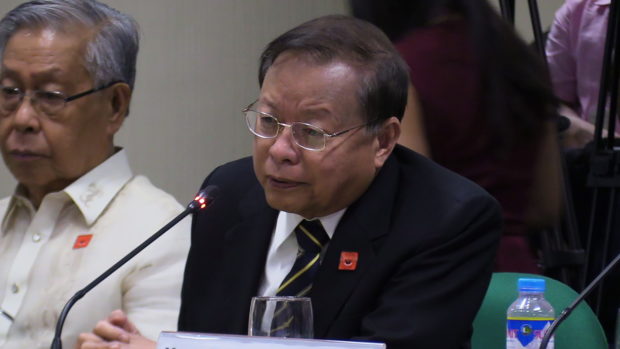
Reynato Puno, Former Chief Justice of the Supreme Court of the Philippines. INQUIRER.net / CATHY MIRANDA
The consultative committee created by President Rodrigo Duterte to review proposed changes to the 1987 Constitution is considering giving the Commission on Human Rights (CHR) prosecutorial powers and expanding its jurisdiction to include nonstate actors.
Former Chief Justice Reynato Puno, the committee chair, told a radio interview on Saturday that the CHR would be elevated to a body similar to the Office of the Ombudsman and other constitutional commissions, which have prosecutorial powers.
The expansion of the CHR’s mandate, he added, was in consonance with the committee’s decision to include socioeconomic and environmental rights, as well as the right to privacy, in the Bill of Rights in the proposed new Charter.
Go after all violators
“If we see the evolution of human rights, even political and civil rights, it’s not only the government that violate them. More nonstate actors do. That is why the mandate [of the CHR] to go after all violators, whether government or nongovernment actors,” Puno said.
He added that the defense of environmental rights should not be left to individuals, considering the violators are big corporations.
This is why, he said, a government body with plenty of resources, such as the new CHR, should be the one fighting for such rights on behalf of the people.
Puno said the committee was also looking into the composition of the CHR for the possible inclusion of members from sectors where human rights violations are prevalent, such as urban and rural poor and indigenous peoples.
Puno said the CHR would also investigate and prosecute violations of the right to privacy.